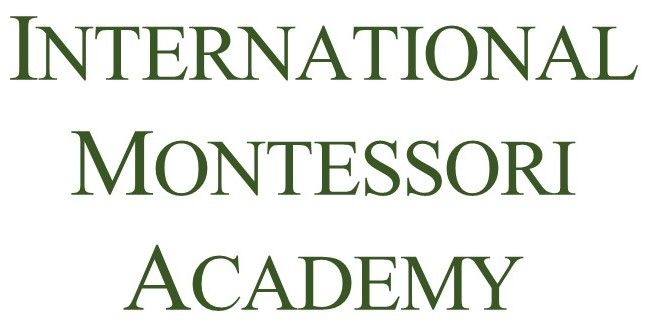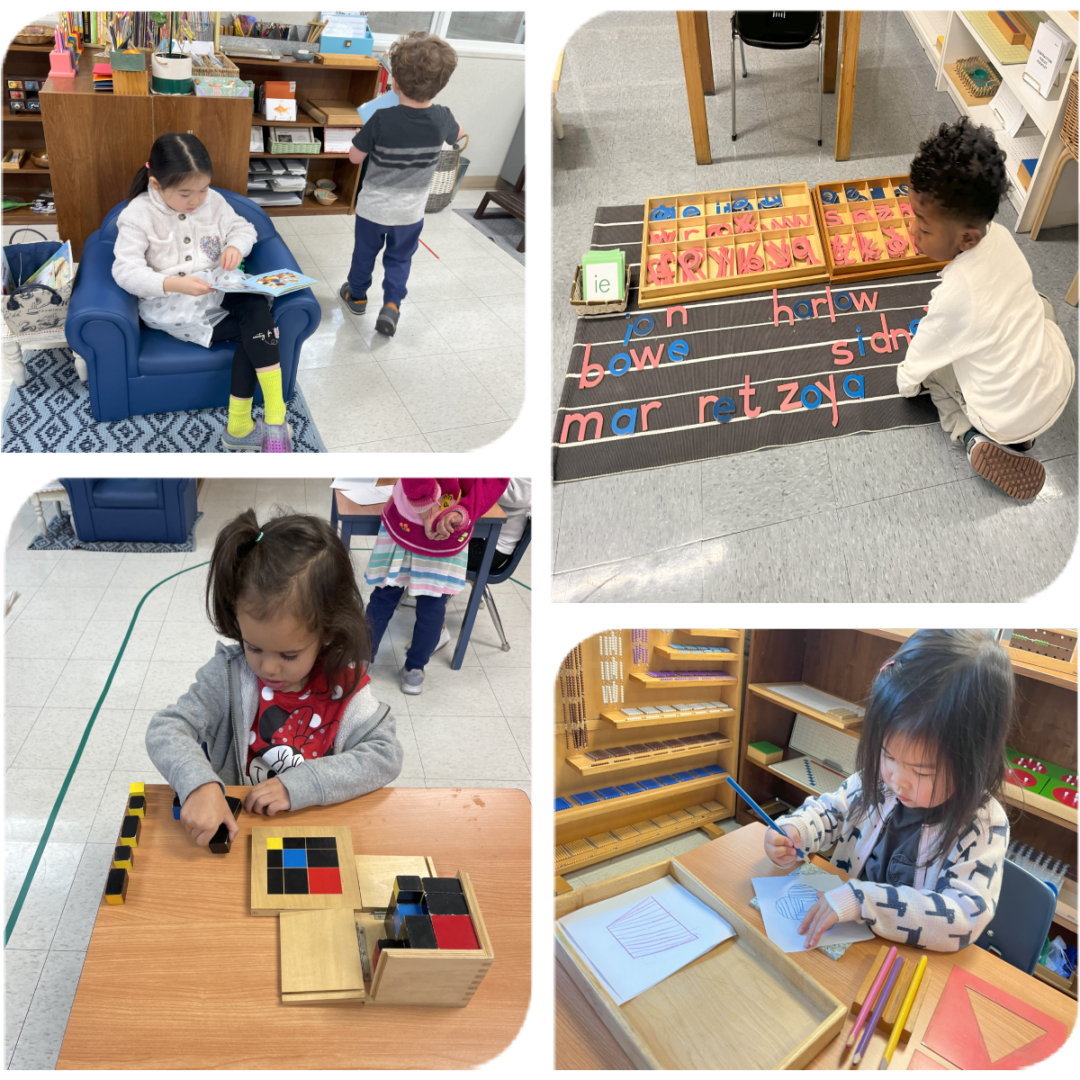
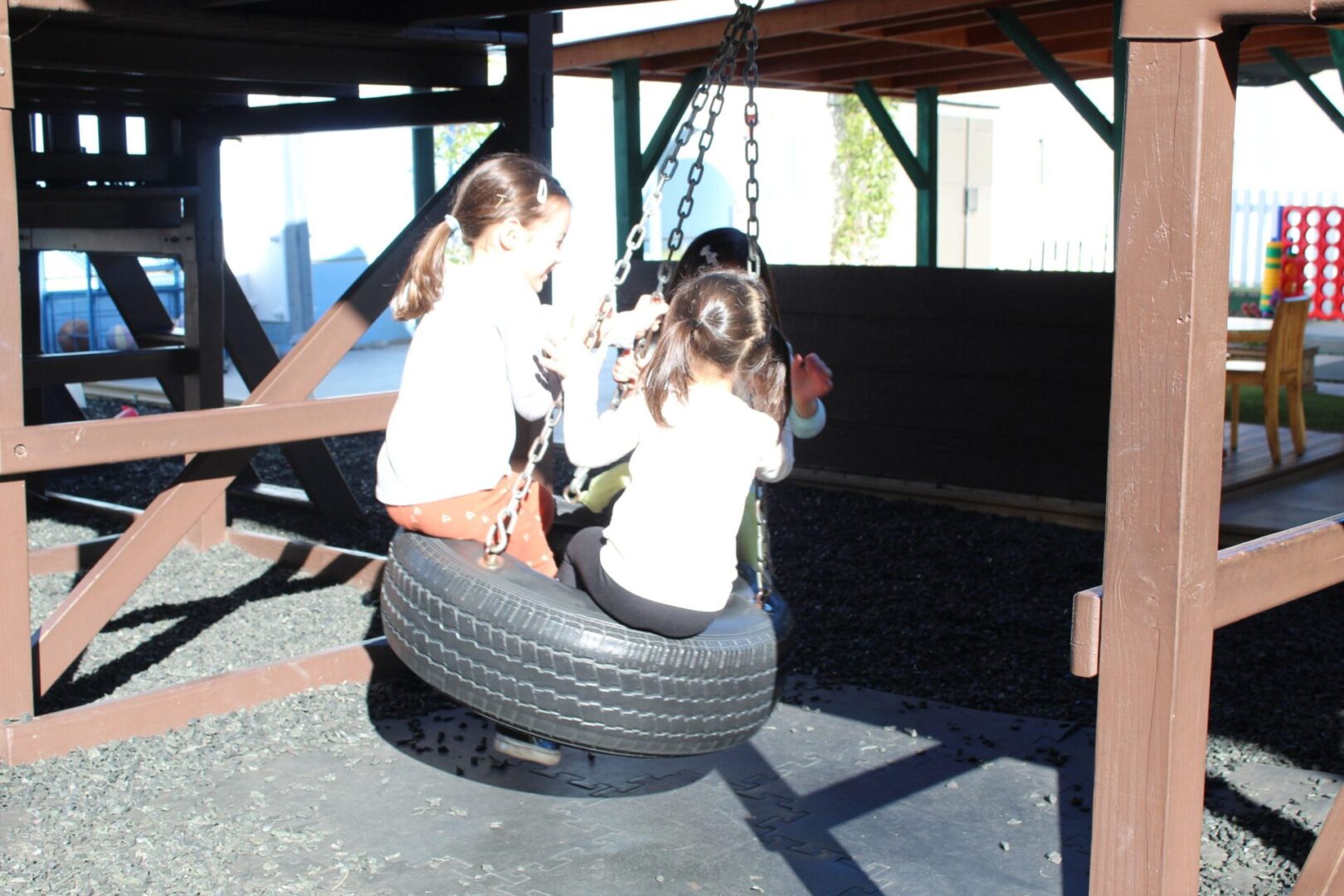
Detailed information about Our Programs
Our school is licensed to serve children aged 24 months to 6 years old. Our Toddler classroom is for children 2 to 3 years old in the process of learning physical and practical skills like eating, dressing, and toileting, and emotional skills such as expressing themselves and being able to cope with separation anxiety. Once children exhibit readiness and maturity in their development, they are invited to join the Primary classroom, which has children from 2.5 to 6 years old, to further develop their independence, concentration, socialization, and love of learning.
Click a category above for more information
Some Characteristics of an Authentic Montessori Environment
Following the Child
The Montessori method utilizes a child-led approach. This involves observing and understanding his/her needs and following his/her interests by providing beautiful, carefully prepared, and age-appropriate specialized activities and materials. These activities and attractive materials are methodically organized and displayed to invite the child to explore, manipulate, and engage with them.
Multi-Age Groups
Unlike most traditional schools, a Montessori classroom features a mix of ages among the children. This is because younger children instinctively want to learn from the older ones. What’s more, the older ones develop and exercise leadership and kindness by teaching and serving as role models. This social cohesion and sense of community is representative of the larger society for which they are being prepared.
Order and Consistency
Order provides a sense of safety for the young child, who finds comfort and reassurance by having access to the same materials in the same sequence each day. Consistency in the routine and in adult interaction is key to this sense of security as well. Taken as a whole, it translates into a sense of control and predictability, which helps develop the child’s confidence, mental organization, and logical faculties.
Collaboration with Adult
The carefully orchestrated adult/child interaction in a Montessori classroom is unlike many traditional ones. Dr. Montessori envisioned a collaboration between teacher and child that would set children free to become their best selves. At a time of life when children’s every instinct urges them to want to “do it myself”, this delicate role of the teacher as a facilitator rather than director sows the seeds of independence and self-confidence.
Maximum Effort in Work
Our Montessori environment gives children the opportunity for self-directed learning and purposeful activity, allowing them to lead, choose, explore, and repeat as they wish. The adult steps back when the children are engaged constructively and offer guidance only as needed. They are seen in poses of concentration, focus, and diligence, purposefully pursuing mastery of one activity at a time and taking turns among themselves.
Teacher-Student Ratio
While complying with state law requiring a 1-to-12 teacher/student ratio, a Montessori Primary Classroom (2-6) typically has between 20 to 24 students. This may seem larger than traditional schools that may have more teachers per student. However, when Montessori principles are properly applied, it is the optimal size and ratio to foster the sense of community, mentorship, and independence described above.
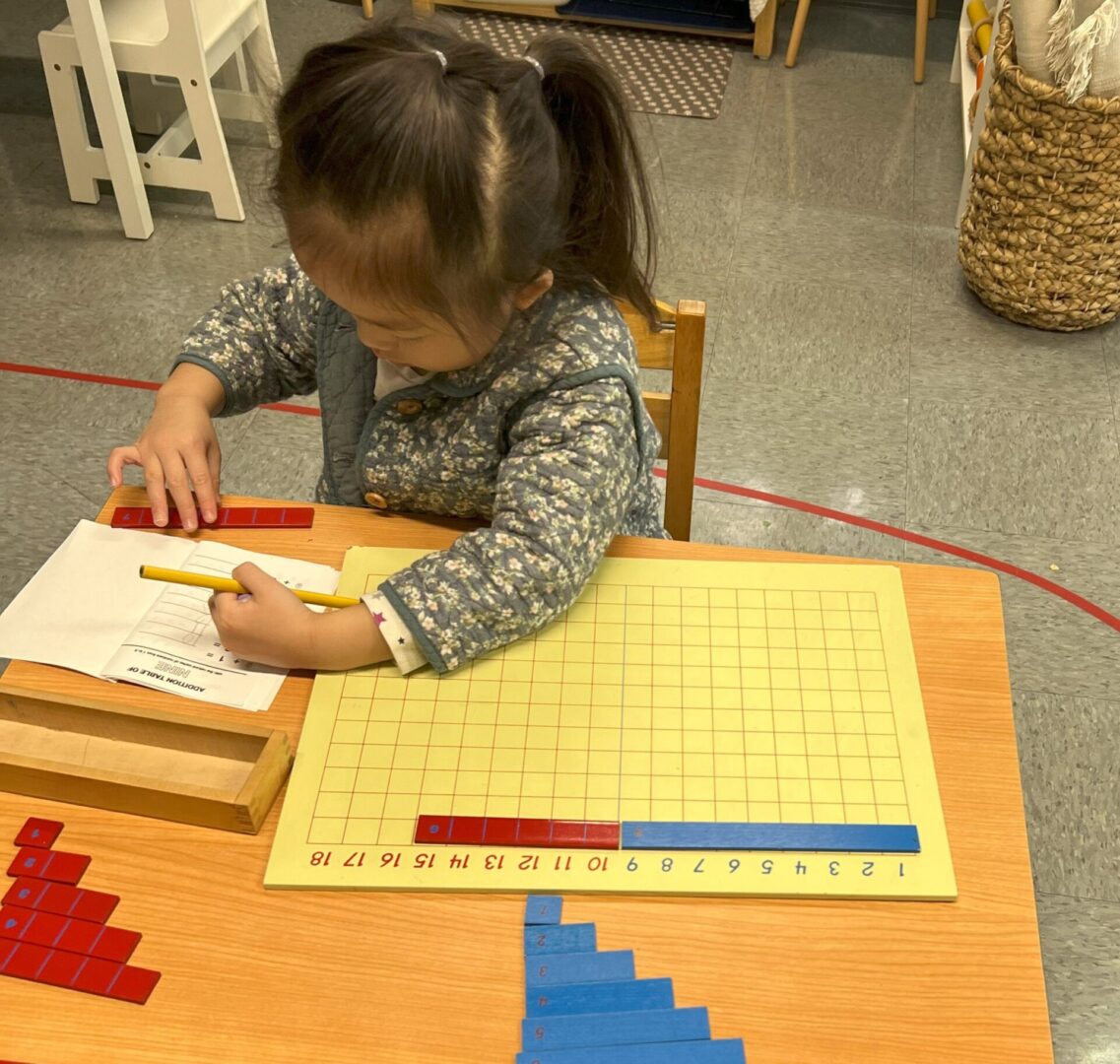
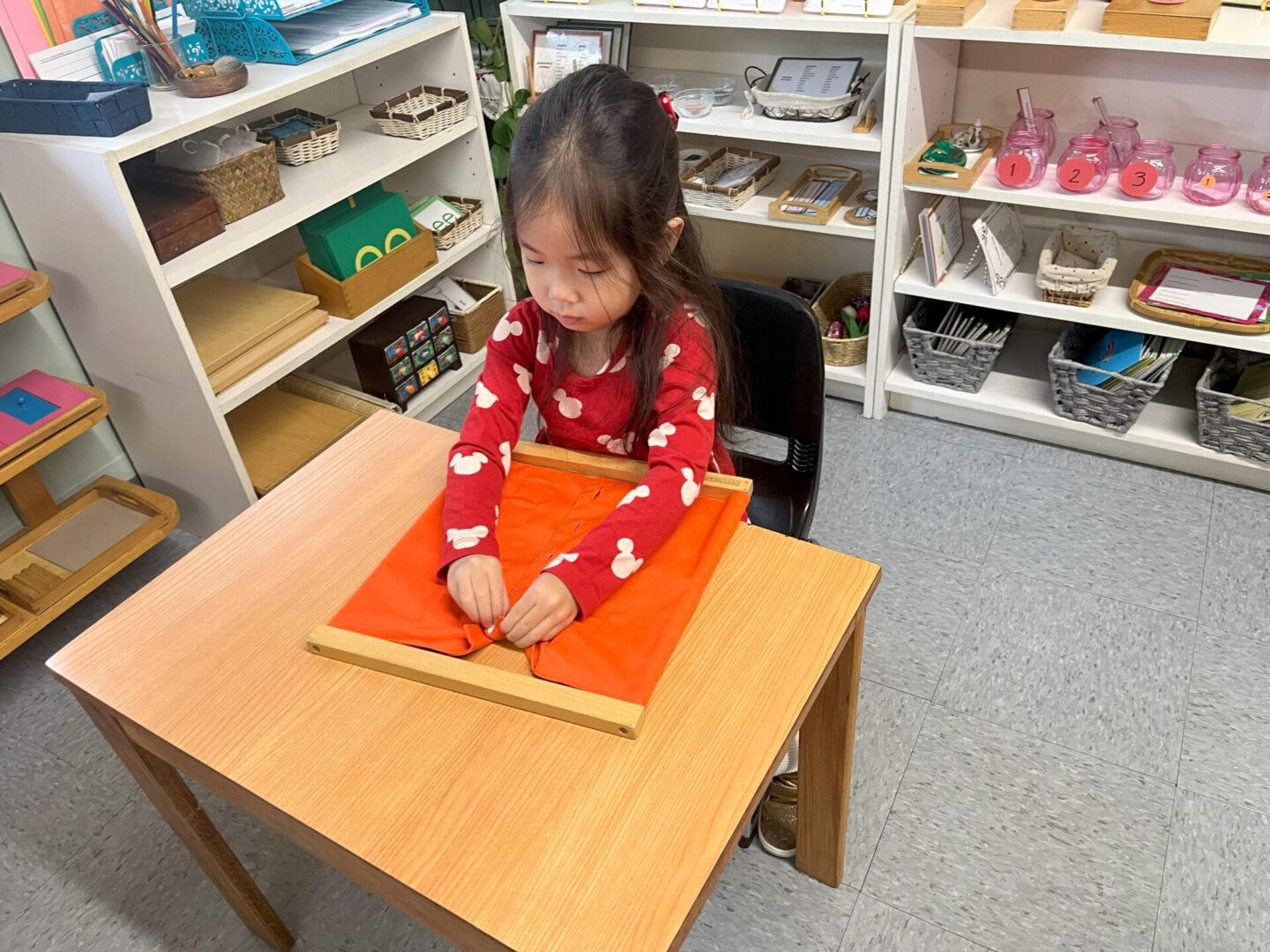
Activities and Snack-Time
During our morning and afternoon extended hours, children engage with open-ended materials (such as legos, magnetiles, blocks, etc.), puzzles, and art, following the Montessori guidelines practiced during the day in their classroom.
This means children take turns with these materials, take care of them, and return them back to the shelf once they are done. The consistency in how the classroom works helps the children continue developing patience and kindness toward each other. When weather permits, children spend considerable time outdoors during aftercare to explore nature and free play and end the day indoors when getting ready for pick up.
- Snack Children also take turns to eat snacks whenever they are hungry, so please pack extra snacks in small containers for your child to enjoy at the end of the day. We offer fruits only as a supplement.
- Enrichment classes (in small groups/classes are 30 minutes long) Enrichment classes are held in-house with IMA staff who are already familiar with the children and continue to implement Montessori principles with the goal of children engaging joyfully in class. Mondays: Spanish class. Tuesday or Thursday: Music class. Wednesday: Yoga class. Please send in a yoga mat labeled with your child's name at drop-off on Wednesdays, if you wish your child to participate. Classes occur between 3:00 pm-4:00 pm, and they are included in the extended day tuition.
